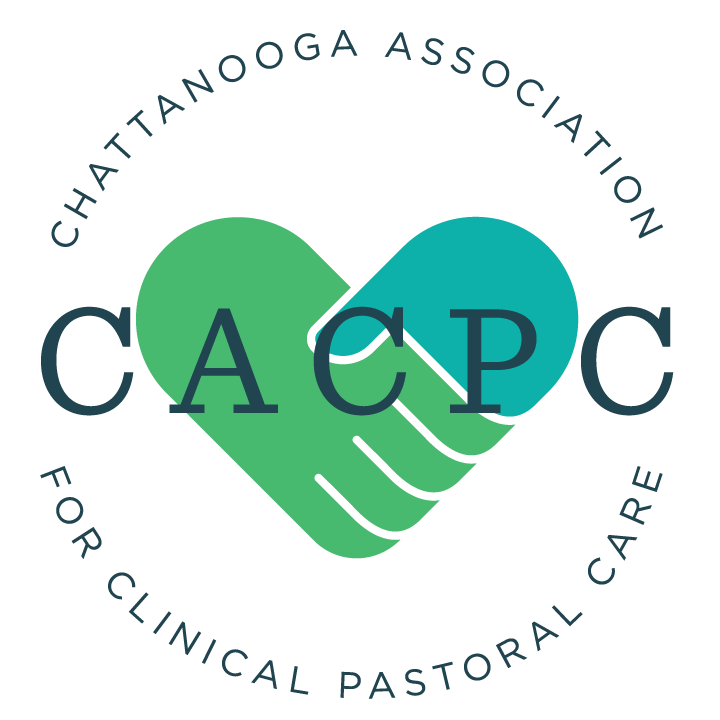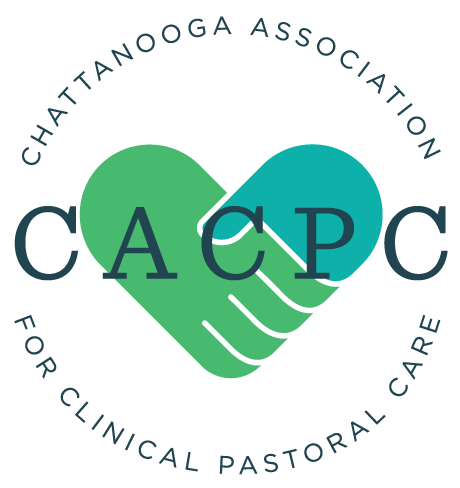Courses Offered
16-Week Overview for the Extended Clinical Pastoral Education Unit
Weeks one and two - Orientation to the Clinical Pastoral Education program, Erlanger Health System and Hospice of Chattanooga.
Weeks three through eight - Monday and Wednesday mornings - seminar sessions including student verbatim presentations, open agenda seminars and didactic lectures led by a supervisor or guest.
Clinical Visitation - Students visit 12-15 hours per week assigned hospital areas serving as chaplain to patients, family members and staff.
On-Call Responsibilities - Students rotate in weekend on-call providing ministry to persons in Erlanger Hospital.
Supervisory Meeting - The student meets weekly with his/her supervisor to reflect upon his/her pastoral ministry and personal/professional integration.
Week nine - Mid-Unit Evaluations. Students write mid-unit evaluations of their learning process. Areas students address include:
A. Progress in addressing learning goals.
B. Relationships with patients/family members and staff.
C. Relationships with peers and supervisor.
D. Relationship with God.
E. Recommendations for continued learning.
Weeks ten - fifteen - Continued learning according to the schedule described in weeks three - eight.
Week sixteen - Final evaluations written by students and supervisors, closing worship, presentation of certificates and luncheon.
Didactic lectures are planned according to the needs of each peer group. The following is an example of the didactic lectures for a unit:
Week 2 - Introduction to the Myers Briggs Type Indicator
Week 3 - Initial Pastoral Visits
Week 4 - Pastoral Listening Skills
Week 5 - Crisis Ministry
Week 6 - Grief and Loss
Week 7 - Death and Dying
Week 8 - Mid-Unit Evaluations
Week 9 - Understanding Strokes and Traumatic Brain Injuries
Week 10 - Ministering to the Alzheimer’s Patient
Week 11 - A Theology of Pastoral Ministry
Week 12 - Introduction to Family Systems Theory
Week 13 - Introduction to Genegrams
Week 14 - Cross-Cultural Issues in Pastoral Care
Summer Full-Time Clinical Pastoral Education Unit
Week one - Orientation to the Clinical Pastoral Education program, Erlanger Health System and Hospice of Chattanooga.
Weeks two - five - Daily seminars including student verbatim presentations, worship seminars and didactic lectures led by a supervisor or guest.
Supervisory Meeting - The student meets weekly with his/her supervisor to reflect upon his/her pastoral ministry and personal/professional integration.
Clinical Visitation - Students visit 20-25 hours per week in assigned hospital areas serving as chaplain to patients, family members and staff.
On-Call Responsibilities - Students rotate in 24 hour on-call providing ministry to persons in Erlanger Hospital.
Week six - Mid-Unit Evaluations. Students write mid-unit evaluations of their learning process. Areas students address include:
A. Progress in addressing learning goals.
B. Relationships with patients/family members and staff.
C. Relationships with peers and supervisor.
D. Relationship with God.
E. Recommendations for continued learning.
Weeks seven - ten - Continued learning according to the schedule described in weeks 2-5.
Week eleven - Final evaluations written by students and supervisors. Closing worship, presentation of certificates and luncheon.
Didactic lectures are planned according to the needs of each peer group. An example of lectures is provided in the 16-week overview.
Full-Time Clinical Pastoral Education Year Residency
OVERALL TRAINING OBJECTIVE
Students in Clinical Pastoral Education learn the dynamics and practice of ministry by participating in a supervised program of clinical ministry to persons in crisis, thereby enabling formation of pastoral identity, pastoral competence and pastoral reflection. The residency will emphasize the following four areas:
Emphasis I: Developing Pastoral Identity as a Hospital Chaplain (Level I CPE)
Emphasis II: Development of Pastoral Relationships for Care and Counseling (Level II CPE)
Emphasis III: Developing a Systems Orientation for Care and Counseling (Level II CPE) Emphasis IV: Developing Ethical and Cultural Sensitivity in Care and Counseling (Level II CPE)
SPECIFIC OBJECTIVES FOR RESIDENCY:
Pastoral Formation
Develop awareness of self as minister and ways ministry may affect persons.
Develop awareness of self as person and ways one’s personality may affect ministry.
Develop awareness of self in interpersonal relationships and how one establishes and builds relationships.
Pastoral Competence
Develop awareness and understanding of the needs of persons, both individually and in relation to the social systems and structures of their lives.
Develop skills in providing pastoral care and counseling to persons.
Develop ability to utilize one’s spiritual/religious heritage, and faith perspective in caring for persons.
Develop the ability to utilize and integrate knowledge of behavioral sciences in pastoral care and counseling.
Develop awareness and identity of the pastor as a professional and in relation to other professionals
Develop one’s pastoral role and function in the roles of ministry, including preaching, teaching, leadership, management, pastoral care and counseling.
Pastoral Reflection
Develop understanding and ability to apply the clinical method of learning in ministry.
Develop the ability to utilize peers and supervisor for consultation for personal and professional growth.
Develop the ability to self-supervise one’s pastoral development and work.

